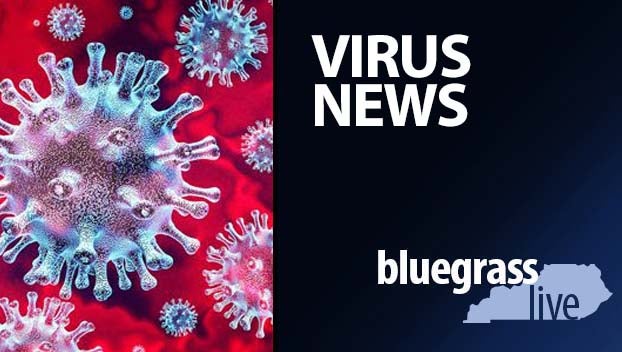Beshear: Virus-related hospitalizations dropping in Kentucky
Published 5:53 am Friday, October 1, 2021
Pointing to a decline in coronavirus-related hospitalizations, Kentucky officials are hoping the new month will be much better than September, when the delta variant pummeled the state.
Hospitalizations due to COVID-19 decreased based on a rolling average during the past seven days, and the number of virus patients in intensive care units is also lower, Gov. Andy Beshear said.
“This is now enough of a trend to say we are in a decline, and we hope it continues for people hospitalized because of COVID,” the governor said at a news conference.
The state later reported slight declines Thursday in the number of coronavirus patients in hospitals and intensive care units compared to the day before.
The downturn comes after Kentucky was hard hit by a prolonged coronavirus surge, fueled by the highly contagious delta variant as virus cases, hospitalizations and deaths escalated, mostly among people unvaccinated against the virus. While virus deaths
have remained high, there have been other signs of hope for a downturn in the outbreak. The number of new COVID-19 reported Thursday was down sharply from the prior day, when the governor said virus cases were continuing to level off,
“Knock on wood, folks, hopefully October is much, much better than September,” Dr. Steven Stack, Kentucky’s public health commissioner, said earlier Thursday.
But the Democratic governor warned that virus-related hospitalizations remain far too high.
“If we went back a month and a half, where we are right now would rightfully scare the heck out of us,” Beshear said. “So let’s make sure that that decline continues.”
The state’s death toll from COVID-19 has continued to climb steadily. On Thursday, the state reported 53 more virus-related deaths, and the prior day 82 deaths were reported. Kentucky hospitals were treating 1,976 coronavirus patients Thursday, including 566 in intensive care units. Both figures were down slightly from the previous day. Two weeks ago, 2,453 virus patients were hospitalized in Kentucky and 667 of them were in an ICU.
In making the case yet again for the unvaccinated to get the shots, Beshear said the vaccines provide “incredible protection” against the virus. More than 70% of Kentucky adults have received at least one dose of the vaccine, according to state statistics. The governor also has urged Kentuckians to wear masks when indoors in public places to help curb the virus’s spread.
“Enough is enough,” Beshear said Thursday. “As a commonwealth, let’s make sure we come together. Let’s make sure we have those hard conversations with people we love. Let’s get everybody vaccinated. And then let’s get done with this thing.”
Though virus-related hospitalizations are declining, the strain on Kentucky’s hospitals continues, with nearly two-thirds of them still reporting critical staffing shortages, the governor said.
“Please, if you know someone who works in the hospital, thank them,” Stack said. “They’ve been through a lot. They’re going through a lot right now. The levels are still way too high to celebrate.”
On Thursday, Republican Senate President Robert Stivers sent a letter to Beshear saying that lawmakers are ready to work with the governor to help hospitals overcome staffing problems.
Some prominent Senate Republicans have urged the governor to call lawmakers back for another special legislative session to funnel aid to those hospitals. Stivers outlined different options for securing the funds to help hospitals bolster staffing.
“I think I was pretty clear that if we’re going to call a special session, they need to come meet with me, and I got a letter,” Beshear told reporters in responding to the letter.
Only the governor can call lawmakers into a special session.
Beshear said Thursday that the “serious work” needed ahead of any special session to guarantee a consensus on any action had not been done. He also signaled he remained unpersuaded that the funding would resolve the problem, saying it could “escalate the arms race” among states trying to lure additional health care workers to help beleaguered hospitals treat COVID-19 patients.






